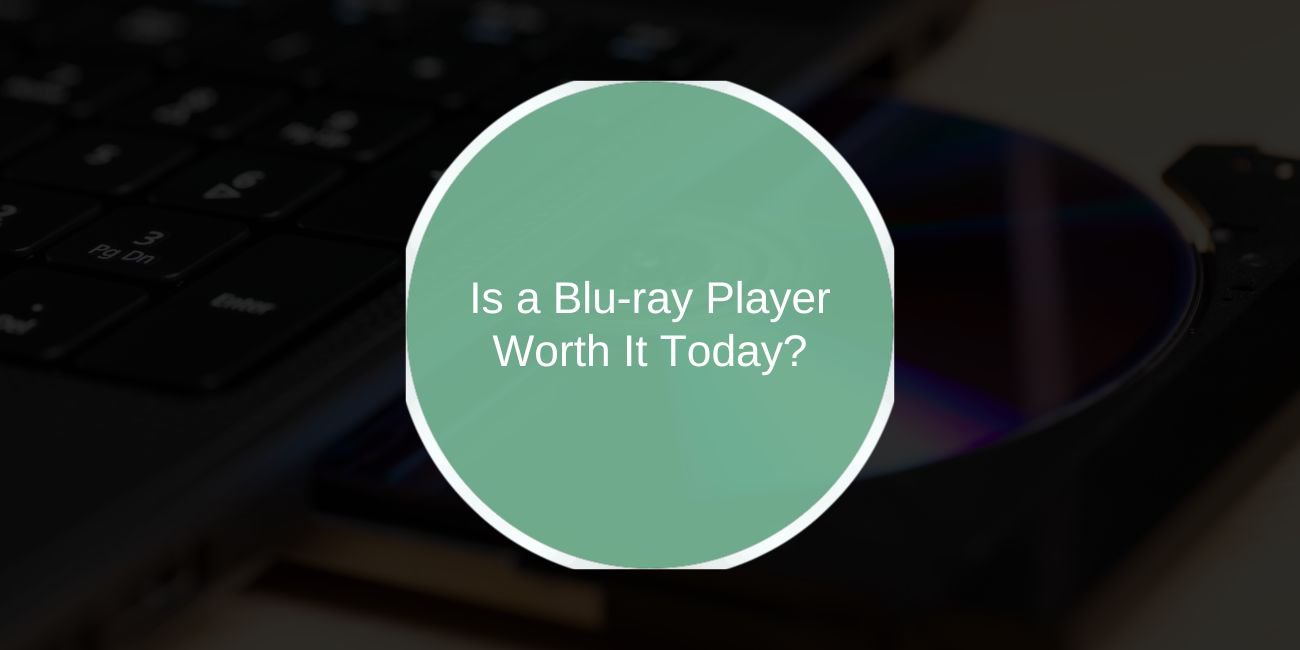Streaming services like Netflix, Prime Video, and Disney+ are easy to access and widely available. People can watch shows with just a click. But some users want more than convenience. They want the best picture, top audio, and complete control over what they own.
That’s where Blu-ray comes in. While many think discs are outdated, Blu-ray players still serve a purpose, especially for movie lovers, collectors, or anyone who values quality and offline access.
This article helps you figure out if buying a Blu-ray player is still a smart move for your needs today.
What Does a Blu-ray Player Do and Why Does It Still Matter

A Blu-ray player is a device that plays Blu-ray discs, DVDs, and audio CDs. It connects to your TV or projector via HDMI and plays high-definition video. Some newer models support 4K Ultra HD Blu-ray, which delivers higher resolution than standard Blu-ray and most streaming services.
Modern players also support advanced video formats like HDR10, HDR10+, and Dolby Vision. These features bring deeper colours, better contrast, and a brighter image on HDR-compatible TVs. On the audio side, many Blu-ray players can handle Dolby Atmos and DTS: X formats that add 3D sound layers to surround sound setups.
Brands like Sony, LG, and Panasonic still manufacture Blu-ray players. Some even include built-in apps such as Netflix, Amazon Prime Video, and YouTube, making them part disc-player, part smart streaming hub. So the device still has a place, especially in home theatre systems.
Real Benefits of Using a Blu-ray Player Over Streaming
Streaming might be fast and fun, but Blu-ray offers some advantages that digital content can’t match. Here are key reasons why a Blu-ray player is still valuable:
- Higher Bitrate for Video
Blu-ray discs carry more video data (up to 100 Mbps) compared to streaming (usually 5–25 Mbps). This means fewer compression artefacts, more detail, and smoother movement — especially noticeable on large 4K TVs. - Lossless Audio Support
Streaming compresses audio, even for “HD” content. Blu-ray supports Dolby TrueHD, DTS-HD Master Audio, and uncompressed PCM audio, which are used in home theatres, soundbars, and AV receivers. - Offline Access, No Buffering
Blu-ray works without the internet. You don’t deal with buffering, lag, or ISP slowdowns. This is useful for people in rural areas or with limited bandwidth. - Permanent Ownership of Content
Discs don’t disappear like digital libraries. On streaming platforms, movies come and go due to licensing. With Blu-ray, once you buy it, you keep it forever, including access to director commentaries, deleted scenes, and behind-the-scenes content. - Backward Compatibility
Most Blu-ray players play DVDs and music CDs. Some upscale DVDs to near-HD quality, making them look better on modern TVs.
Downsides: Why a Blu-ray Player Might Not Be for Everyone
Despite the advantages, Blu-ray isn’t perfect for everyone. Here’s why some users may skip it:
First, streaming is more convenient. It’s built into smart TVs, phones, tablets, and game consoles. There’s no need to insert a disc, wait for menus, or store physical copies.
Also, discs take up space. If you’re moving toward digital storage or live in a small apartment, storing hundreds of Blu-rays might not be ideal.
Finally, media availability is shrinking. Fewer stores sell discs. Many new movies launch on streaming first. Some older Blu-ray players also lack support for newer formats like Dolby Vision or 4K HDR.
Blu-ray also requires extra hardware: a player, a display with HDMI input, and possibly an audio system if you want full sound quality.
Blu-ray vs Streaming: Quick Quality Comparison
Let’s break down how Blu-ray compares to streaming using real-world factors:
| Feature | Blu-ray Player | Streaming Services |
|---|---|---|
| Video Quality | Full HD or 4K UHD at high bitrate (20–100 Mbps) | Compressed 1080p or 4K (5–25 Mbps) |
| Audio Quality | Lossless (Dolby TrueHD, DTS:X) | Compressed (Dolby Digital Plus) |
| Extras | Menus, commentary, bonus scenes | Usually none |
| Ownership | Permanent (you keep the disc) | Temporary (content rotates) |
| Internet Needed | No | Yes |
| Portability | Not portable | Available on phones and tablets |
If you want control, quality, and permanence, Blu-ray wins. If you wish for speed, ease, and portability, streaming is easier.
Who Should Still Buy a Blu-ray Player?
Not everyone needs one. But certain types of people still benefit a lot:
- Home theatre owners – If you have a big-screen TV and sound system, Blu-ray delivers the best signal to both.
- Physical media collectors – Some enjoy the feel and design of discs, cases, and shelves.
- Slow or limited internet users – In rural areas or during outages, Blu-ray still works.
- Cinephiles – Film lovers prefer director-approved video transfers and extra content not on streaming.
- Families with kids – It’s easier to hand a child a disc and press play than to manage streaming accounts and passwords.
Even casual users may benefit if they already own a collection of DVDs or Blu-rays.
Must-Have Features in a Modern Blu-ray Player
If you plan to buy a player, here’s what to look for:
- 4K Ultra HD Blu-ray compatibility
- HDR10, HDR10+, and Dolby Vision support
- Support for Dolby Atmos and DTS:X audio
- HDMI 2.0 or 2.1 output for newer TVs
- Wi-Fi for firmware updates and innovative features
- Region-free capability (useful for international discs)
- USB media support for videos, music, and photos
Avoid older players who lack 4K support. Also, check for upscaling features if you plan to watch DVDs.
Final Thoughts
A Blu-ray player isn’t for everyone. But it’s still the best way to get top video and sound quality, especially on a large screen with surround sound. If you value ownership, watch discs offline, or care about film detail and extras, it’s still worth buying.
But if you only watch shows on your phone, tablet, or laptop — or never touch physical media — you’re probably fine sticking with streaming.
The decision depends on how you watch, where you live, and what matters most: quality, control, or convenience.
Still using a Blu-ray player? Or thinking about getting one? Drop a comment and share your reasons. And if someone you know is asking the same question, send them this guide.

